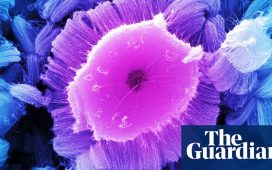The boost people get from drinking a cup of coffee can’t be replicated with plain caffeine, reveals a new study that found additional areas of the brain activated by the hot beverage.
Studies have shown how coffee – that millions across the world refuse to start their day without – makes people more alert.
Researchers, including those from the University of Minho in Portugal, examined whether the wakefulness effect of coffee is dependent only on the properties of caffeine or if additional factors were at play.
They found that plain caffeine only partially reproduced the effects of drinking a cup of coffee, according to the study, published recently in the journal Frontiers in Behavioral Neuroscience.
While caffeine boosted areas of the brain that make one feel more alert, coffee brought additional effects on brain areas that affect working memory and goal-directed behaviour.
“There is a common expectation that coffee increases alertness and psychomotor functioning. When you get to understand better the mechanisms underlying a biological phenomenon, you open pathways for exploring the factors that may modulate it and even the potential benefits of that mechanism,” study co-author Nuno Sousa explained.
People who drank a minimum of one cup of coffee per day were recruited and asked to refrain from eating or drinking caffeinated beverages for at least three hours before the study.
The participants’ social and demographic data was then collected and they underwent two brief MRI brain scans – one before and one 30 minutes after either taking caffeine or drinking a standardised cup of coffee.
During the scans, the participants were instructed to relax and let their minds wander.
Scientists found that consuming both coffee and caffeine led to decreased nerve connectivity in the brain’s default mode network, which is involved in introspection and self-reflection processes.
Researchers said this change could indicate people are more prepared to move from resting to working on tasks.
However, they said drinking coffee may have additional benefits of increasing the connectivity in the brain’s more advanced nerve network controlling vision, and other parts involved in working memory, cognitive control and goal-directed behaviour.
These effects were not found when participants only took caffeine.
In other words, researchers said, if one wants to not just feel alert but ready to go, caffeine alone might not cut it.
“Acute coffee consumption decreased the functional connectivity between brain regions of the default mode network, a network that is associated with self-referential processes when participants are at rest,” study co-author Maria Picó-Pérez said.
“The subjects were more ready for action and alert to external stimuli after having coffee,” she said.
Citing a limitation of the study, researchers said they could not identify benefits coffee drinkers claim that could be due to the relief of withdrawal symptoms.
The new findings also suggest that while caffeinated drinks share some of the effects of coffee, there are still some special benefits from coffee drinking.
These may include factors such as the particular smell and taste of the drink or the psychological expectation associated with consuming that drink.












